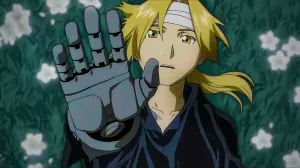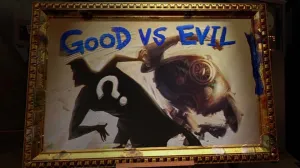For most Jordan Peele fans, we don’t fully grasp what sort of adventures he has in store for audiences until a project lands in theaters, but self-proclaimed fan Nicholas Monsour has an entirely different experience with the material, as he’s also Peele’s frequent editor. Having previously worked with the filmmaker on Key and Peele and Us, Monsour is familiar with a variety of tones that Peele has crafted, while also helping find ways to best serve both the material and the filmmaker himself. While Monsour might not have gotten to witness Nope with fresh eyes in its completed state, it’s a small price to pay to get to be a part of bringing Peele’s stories to life.
Videos by ComicBook.com
The film reunites Peele with Oscar winner Daniel Kaluuya (Get Out, Judas and the Black Messiah), who is joined by Keke Palmer (Hustlers, Alice) and Oscar nominee Steven Yeun (Minari, Okja) as residents in a lonely gulch of inland California who bear witness to an uncanny and chilling discovery. Nope, which co-stars Michael Wincott (Hitchcock, Westworld) and Brandon Perea (The OA, American Insurrection), is written and directed by Jordan Peele and is produced by Ian Cooper (Us, Candyman) and Jordan Peele for Monkeypaw Productions.
ComicBook.com caught up with Monsour to talk his collaborative relationship with Peele, crafting the nostalgia of the Gordy’s Home! sequences, and how more of Nope‘s secrets could be revealed in the future.
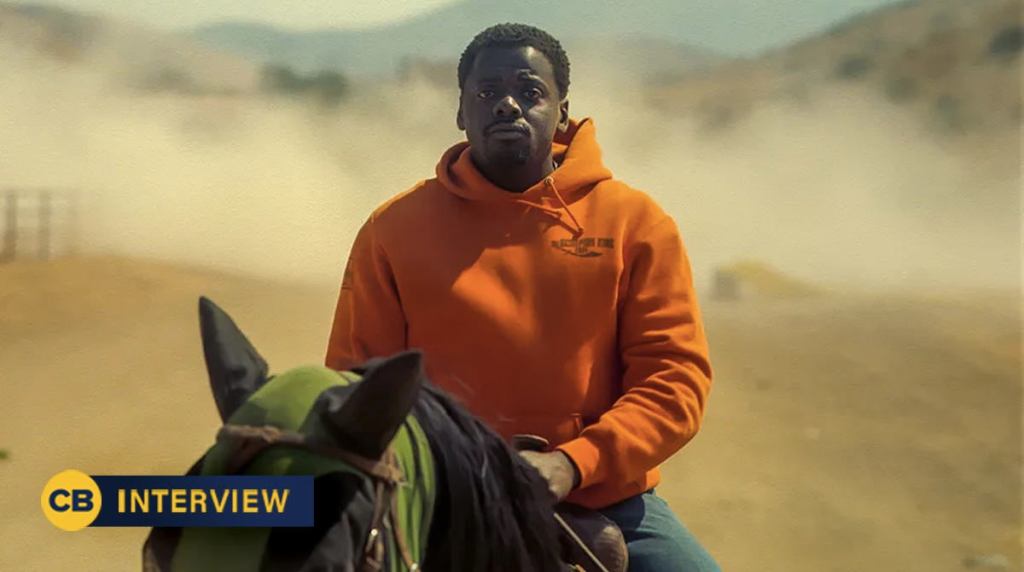
First-Time Viewer
ComicBook.com: Earlier this week, Peter Jackson talked about how he considered going through hypnotherapy to forget that he had made The Lord of the Rings so he could watch The Lord of the Rings as a fan. Having edited Us and then Nope, do you at all ever feel envious of audiences who get to see the final product for the first time, as opposed to reading the script, fine-tuning it, seeing it probably 1,000 times, one scene at a time? Do you almost wish you could be a little bit more hands-off to actually get to enjoy a Jordan Peele film?
Nicholas Monsour: For sure. I think this one, probably more than any other, I would be so curious to know what that experience is like to see it without knowing and without having gone through the time of looking at all the footage and everything and hearing all of Jordan’s thoughts and just going in and encountering it as a movie. But I do think part of being an editor is you’re always watching things that way a little bit. So even movies that I didn’t edit, I’m often always thinking about it that way. And then I think, you also, as an editor, have to try to be able to watch things that you’re working on a bit objectively.
So hopefully I can imagine, but yeah, totally. I’m totally jealous of that. That would be really fascinating. And I didn’t edit Get Out, and I love that movie and love watching it, which is cool, because I think maybe I do have a little bit of a mixed sense of Jordan’s work from working with him and not working with him.
Well, I’ll text him after this and say, “Give Nicholas a break for the next two movies,” so you can have that again.
Well, wait, hold on.
No, I’ll be curious to see, maybe the hypnotherapy will work for Peter Jackson and I’ll get that info.
You’ll get that done.
I do joke that I think a good thing for an editor to have is a really great medium and short-term memory, but a pretty bad long-term memory, because you can come back to a thing after a while and encounter it again, so maybe it usually takes me about a few months and then I can watch it and it feels very different and I see it more clearly.
Collaborative Efforts
When you watch the final cut at the premiere, were there any scenes that you and Jordan really butted heads on that you ultimately had to say, “I would’ve gone a different way, but this is Jordan’s movie and I’m here to serve Jordan’s vision,” once you see it with an audience and completed visual effects?
At the end of the day, it’s all that. I think my job is to really make my case and to really share my feedback and my opinion. But if I’m not understanding why he wants it to be the way he wants it to be, then I don’t think I’m really inside the movie enough. So I’m hoping that … It’s a balance you have to find and I think any collaborator will tell you that, whether you’re co-writing something with someone or the DP or the production designer, I’m sure there’s things we all respond to, but it’s what’s fascinating about working with a person like Jordan, who’s the sole creator of his work. It’s not based on anything else and he’s the writer and director and a producer.
So you do have this direct link to the origin of the idea in working with him and he gives me so much freedom to show him ideas, that it’s usually not butting heads, it’s usually obvious to both of us like, “Oh yeah, the thing I did wasn’t quite there,” but it made him think of another thing, and then we tried another one and that one is right. We usually just feel it. I think I end up knowing pretty clearly which things I need to go back and say one more time, “Are you sure not this?” or the ones that he’s totally right about.
So, that said, there’s always surprises when you watch the final mix and when you hear the final score, there’s always something that is surprising. You also have to learn to not just react because it’s different and think, “Oh, now it’s different and I don’t understand it anymore,” but to be open to those changes, because it really is a really collaborative team that he builds and works with. I always know now that the end result is going to be a mixture of all the things he’s worked on with all his collaborators and there are times when the editor, you get your fingerprint on all of that, and other times you’re really a member of a team and you’ve got to adjust to that. But it’s great with Jordan, because the teams he builds are incredibly talented people.
Musical Experimentation
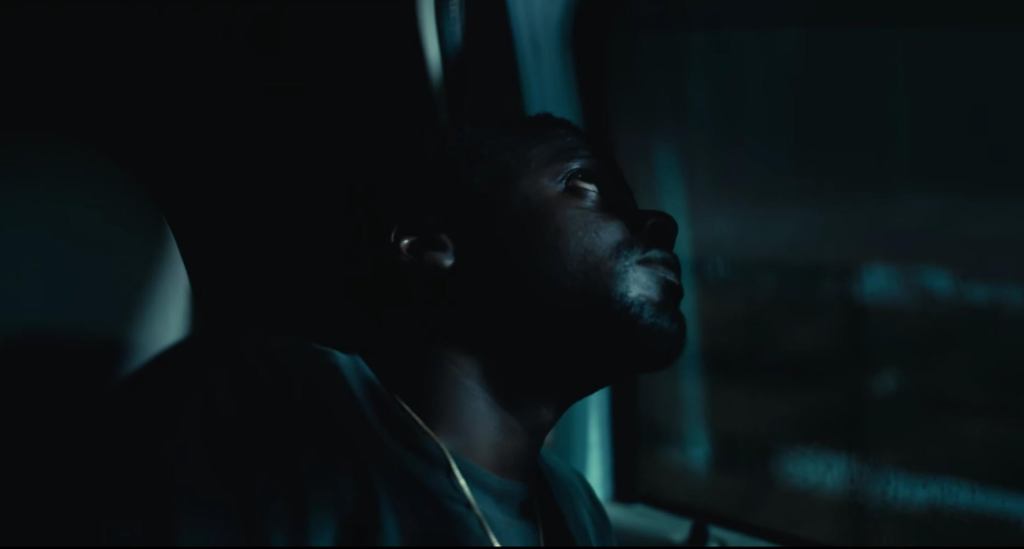
This is a super specific thing that just came to mind as you were talking about using temp music and to just get the tone, get the pace. Specifically with the, I believe it’s called “Sunglasses at Night Jean Jacket Remix” or whatever, with the super slowed-down version of that song. Was that always the song that was in when you were doing a temp cut or was that something that came in later?
He always got a starting point, and then he loves the experimenting, even if we end up going back full circle. So no, there were 100 songs we threw in there, but it’s always a feeling he’s going for, and exactly as scripted. But the other part, again, of working with Jordan, where he’s the writer and director and producer and it’s all his original ideas, is the script keeps changing. So what he may have written as a song in the script that we went into production with doesn’t mean that’s the script anymore, because he keeps writing it through shooting and through editing. Some are later discoveries or things where we’re in love with a song and then we see that it was just used recently in something else. We’re like, “Oh, well maybe that means something else now to an audience.”
There’s always that attenuation. But that one, the idea was in there always of Jean Jacket being this on-the-fly DJ, chopping and screwing all the different tracks. It was just endless fun to throw different ones in there and slide the timing for when the different words fall. But he worked with a music editor and tried that stuff. I would try some. It was like an all-hands on deck, throwing things at it and seeing which one was the best in the end.
Were there others that you were particularly thinking, “I dig how this turned out,” that didn’t make it?
I think in pretty much every spot, there are ones that I thought were great, but then what you end up finding is there’s this ecosystem of all the songs. So I don’t think in the current version I’d swap any of them, because they all play well together. You might double up on the same thing or it doesn’t feel like the movie has the same identity with a different balance of music, so I don’t think I’d change any now, but there were ones that were great in and of themselves for a long time, but I’ve noticed, also, that a lot of directors, if one doesn’t quite work for one project, it’ll often show up in the next one.
So I don’t I think — that’s part of the magician’s trick stuff that I probably, unless he mentions it in an interview, then [I won’t reveal].
Valid. Well, and I can’t help but hope that, like Taika Watiti said that they almost used Kate Bush in Thor: Love and Thunder but then Stranger Things was this huge Kate Bush thing, so I like to think that there was a version that also had Kate Bush.
I can neither confirm nor deny. If you want, as your own experiment when the movie comes out streaming and Em gets on her motorcycle at the end and kicks it into gear and goes on a ride, if you want to throw on “Running Up That Hill” over that and just see what you think, that’s all I’ll say.
After I talk to Jordan, I’ll shoot Kate Bush a text to see if she has any input on those situations.
That would be great. That would be awesome. But yeah, there are ones that I particularly loved using. That Gowan song for the Gordy’s Home! theme song, it was stuck in my head, and then I tried it one day and we had it for like a year. Actually, maybe I’ll give this away since it was my initial pick. The thing that was in there for a long time was Baltimora, a song “Tarzan Boy,” which is a song nobody knows why they know it, but they all know it, and it worked great. But then at some point “(You’re a) Strange Animal” just worked better.
“We’re never staying on anything longer than it stops telling you something interesting or relevant.”
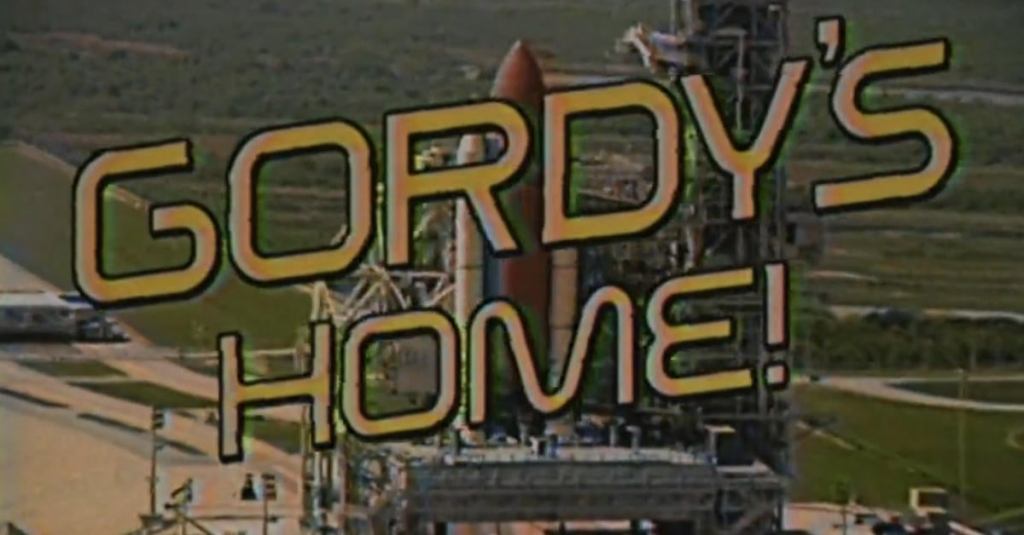
You bring up one of my favorite components of the entire movie, which is everything related to Gordy’s Home! I love how much we saw of that, I love the way we revisited it and it was cut off in certain ways, I love everything about the Gordy’s Home! flashbacks. Was there a lot more of that? What were those discussions of fine-tuning when to cut it off in the flashbacks, when to finally show what happens to Gordy in that final flashback? If you could just talk about the development of all of that.
Well, it’s a funny thing, again, because now that I’ve worked with Jordan a fair amount, there’s a certain amount that goes unspoken, and I’d love to say it’s some advanced editor telepathy, but you also just pick up on cues from the footage and certainly the script of how much you think Jordan wants to see or wants the audience to see, how much they want it to be visible or implied or whatever and certain descriptions and the script will give you that hint. Like how impactful, how gruesome, how terrifying it is in the script gives you some sense. Then when you look at the footage, you’re like, “Okay, they seem to cut there all the time. So I’m guessing by that point, probably, we’re not showing it,” so they may run it, but you can tell.
Then also from working with Jordan, there’s a certain amount now that I know the way he approaches graphic horror and how much I think I totally agree with him. I’m sure we have a different rationale, but not seeing something can be 10 times more disturbing and scary or seeing just an implication of it or the edge of it, so I’ve learned his taste on that, and then he is always surprising me with new choices, but that was, I want to say from pretty early on, pretty much settled. We had a thing and there were certain stylistic things that he would tell me, he was like, “Why don’t you try three seconds of black there?” And I’d say, “Okay.” That probably isn’t often in my first assembly of choices like that. Maybe if it strikes me as really interesting, but that was one that he gave me early on.
That helped me understand, “Oh, he is going for this really staccato … The camera really only shows you exactly what you’re supposed to see. There’s no extra frames.” And even though the pace can go down and up, hopefully you build trust for the slower pace and you realize you’re supposed to be thinking or paying attention or soaking something in, because we’re never staying on anything longer than it stops telling you something interesting or relevant. That’s the goal, anyway.
I think that was pretty straightforward. We were on the same page, and it didn’t take a lot of talking about. We would do our due diligence and try things and scrub through things, but it was always pretty settled.
Discovering the Support and Scaffolding
Especially in the blogosphere, whenever a director says, “The original cut was four hours long,” people want to pick that apart and think, “Well the director wanted it to be four hours long.” It’s, well, no, that’s just when you put every scene together, there are four hours worth of scenes, and the director does not want that. Once you put the assembly cut together, once you started fine-tuning what this film was going to be, were there any major discoveries within that edit working with Jordan where certain scenes took on a different significance or sometimes characters are completely cut out? Were there any major shifts once you got to that edit that were discovered?
Definitely, and I think the difference from the maybe older school narrative of the director who wants it to be long and everything to be in there and then it gets cut out and they’re angry about it, Jordan designs it to have that discovery process in the edit. He would go deeper into characters and into scenes and into locations and add characters to scenes to flesh out the world more, knowing it can’t all live in the cut, but I think, especially in Nope, I think he really just went to great lengths to create a whole world there, which is adjacent to ours, but a little exaggerated and a little more of a mirror to ours. I think it pays off so much in the shorter version and we always knew, I think from the beginning, it was probably going to be around two hours, 2:10, somewhere in there, just from reading it, thinking about it, talking about it, graphing it out.
I’m like, “Yeah, that feels about right. Maybe it’ll be a little longer, maybe it’ll be a little shorter.” They certainly gave themselves the opportunity to surprise themselves and experiment on the set. Things that the actors and Jordan came up with during rehearsal or during the shoot made it into the final cut and you wouldn’t have known that from starting out. Then, also, things that they tried on the day, we would then try in the edit and be like, “Well, that didn’t work, but I’m glad you tried it because it informed the whole thing. It informed the way the characters work.” Keke and Daniel’s vibe as brother and sister is amazing to me, and I think part of that comes from giving them the ability to do more. So yeah, there were things that maybe felt, even, like, “This expresses that idea, and this expresses that idea.”
You just have to go with your gut at some point and show it to people and see how they react and if they make the same leaps or connections, realize that. That’s part of the process is showing it to other people and then stepping back and realizing you know these characters from the paper to the screen and people who just meet them on the screen might read something very differently. There was lots cut out, but I think what was really unique on Nope was that all the extra stuff, it isn’t a different movie really and it isn’t a different story. It’s just there’s more of the support and scaffolding there that we ended up pulling off as we got to the final cut, I think.
Alternate Cuts
With your response to that, you might have answered this question, but I do want to find out, there is the whole idea of like, “Well, the director’s cut is what is in theaters,” but sometimes there might be extended cuts that come out on home video. Do you feel that Jordan’s cut, the director’s cut, is what is in theaters or do you think there is the opportunity that an alternate cut has maybe more character development or maybe more UFO stuff?
I can’t rule it out. I also can’t really speak for Jordan. I can just say as a viewer of his process, he’s so incredibly intentional about all of it, about the media around it, about the rollout, about the marketing. I remember him doing an interview for Us dressed wearing the same outfit as Jack Nicholson in The Shining without ever saying anything about it. He’s always giving you — he’s adding to the lore and the theatrical experience of going to see a movie is one big part of that. It all grows out of that, but there’s a theme park ride, there’s a virtual Nope you can walk around in. There’s all these other parts of the whole project and there might be another release of something that adds more to that, but I know it’ll be very intentional and it won’t be a competing version of the theatrical or even the streaming film.
I think they’re all based on, “See that cut, and then everything else is deeper and has more layers you can unpeel.” But that edit is very much the one that works the way he wants to for sitting and watching in a theater or at home. It really does, I’ve got to say, the IMAX does make a huge difference if you are able to see it that way, which is just the nature of that medium. I’m not a purist about “you have to watch everything on the best quality thing.” I just know it’s like vinyl to me, if something was recorded and meant to be listened to on vinyl, I’ll buy the record if I really like it to hear the most direct translation. That is true for the IMAX here.
I would like if he singlehandedly revives Quibi and is like, “Yep, this is the best way to watch it, on your phone, 10 minutes at a time. That whole IMAX thing, just a cash grab, watch it on your Apple watch. And that’s what I really want.”
I don’t judge anyone for how they watch stuff, and obviously, it’s hard, not everyone can go to a theater or an IMAX theater, so hopefully it stands up on whatever platform, but yeah, it’s pretty crazy when it’s that big.
“I still get chills anytime I see that shot in context.”
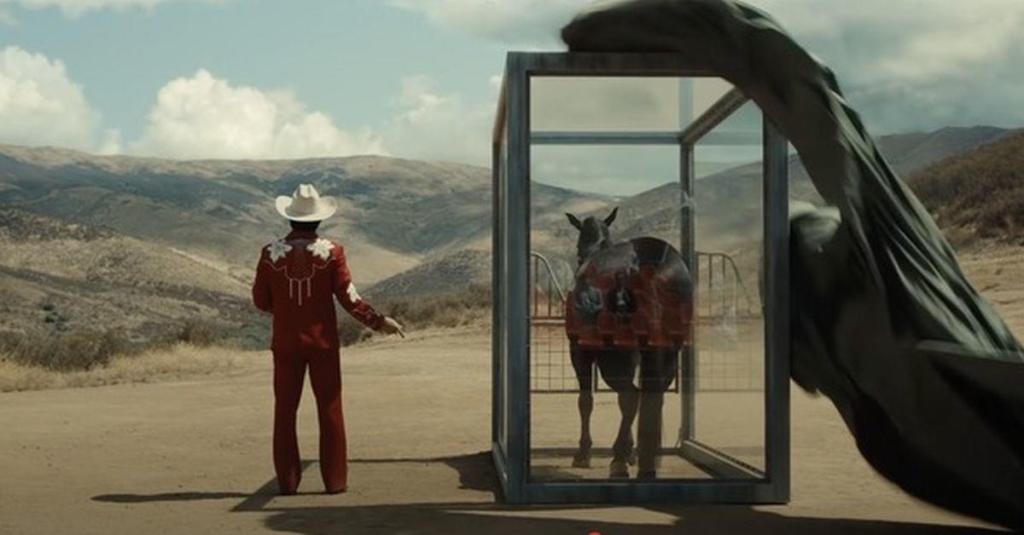
The movie itself offers so many diverse scenes and sequences and encounters, whether it be Gordy’s Home!, intimate flashbacks, or when Daniel is basically just looking up at the sky around him and it’s just a single take of that. What did you feel was the most difficult scene to cut to find the exact, precise cuts and what was your favorite scene to cut, just the most enjoyable, most fun, you could have done 100 different versions of it because you just loved interacting with it so much?
Well, on a technical level, not necessarily a creative level, the whole third act is just a big undertaking where you have four characters, all in different locations, communicating on walkie talkies, intersecting with each other, going off again, and a giant character that is all added in post, other than some practical effects they did on the day. That was just an incredibly … That’s a type of project that I’ve done before, like with big action sequences and you get all the pieces, but it’s technically a really big challenge, because you just have to map it out. There’s maps of all the action, there’s grids of what day they’re going to shoot which piece. There’s lots of temp ADR put in to make it work, and then you can move that stuff around so much. You have to really keep a vision in your head when you’re working on it.
So that was a big, obviously, technical challenge. It took everybody, it took the music, the sound, the VFX, the temp VFX, all of it, we had to work on and build simultaneously to understand the thing. It went through many phases and was definitely the most time and effort. That said, I think action also brings its own natural rhythm that you have to find and tune into. So it’s not necessarily the most creatively vexing.
I think the beginning of the movie was another challenge, because there was so much lovely, beautiful atmosphere with OJ on the ranch and his father and the routine of feeding the horses and meeting Em and what she does. There was so much there that was so intoxicating and really keeps our eye on making sure we were doing the right amount of world-building and character-building and giving you all those specific cultural details that are in all of that material, but not telling you to expect a kind of movie that you’re not going to get or a kind of pace that you then are unpleasantly surprised by it changing.
It’s a balancing act with the rest of the movie that follows. That was tough, because it’s just such great material, and there’s a lot of it. I think I’m really proud of, weirdly, there’s a sequence that’s a little bit, people might not think of as necessarily the most complicated, but I think that says a lot about Jordan’s talent, because it’s actually a really complicated thing to write and figure out in a screenplay, which is the second time OJ encounters Jean Jacket, and they’re out at night and this decoy horse gets taken. Then Angel’s at Fry’s watching the security monitor. There’s fake scares where maybe there’s aliens in the barn, you don’t know, and then there’s something on the security monitor, though, and then it’s all building towards this insane climax and bringing together a lot of different tones and a lot of locations.
It hopefully feels effortless and like you’re just there experiencing it, but that was a tricky pattern to determine, especially with music and sound and all that. So, again, it took everybody’s great contributions, like [sound designer] Johnnie [Burn] doing the things he was doing at the sound to pull it out at the right moments and bringing it in. I think that’s actually really challenging. I would imagine other editors might get it when they watched it or directors or writers can see, because it’s actually, that’s the incident that triggers the rest of the movie and the action. I had to make sure we got that in the ballpark and I found that the most challenging, probably. I’m happy if it works.
I think it works. I’m sure there’s some other, at least a handful of other people out there that thought that scene and the rest of the movie worked.
I do still get chills in that moment when OJ does look up and sees the cloud and the flags, I still get chills anytime I see that shot in context. I’m proud that we kept that feeling, because that was the core of the whole thing.
Secrets Revealed
It must be so interesting for you to at least some degree, when Jordan has a new movie coming out, everyone is just asking, “What is this about and what does the title stand for? What is secretly going to be the reveal?” And, for the most part, this is still a relatively straightforward movie. Obviously, there’s twists and turns, but it’s not necessarily, it’s not like Lost or anything where there’s actually a smoke monster, that Nope is a secret prequel to Close Encounters of the Third Kind or whatever. It must be so interesting for you to know what the movie is and seeing people speculate about what it could secretly be.
It is. Yeah, that is very interesting. I know Jordan’s methods of doing this, I’m always learning and impressed by just how he has a beat on what people are thinking about and looking at and wanting to see and also just continues to, again, from my point of view, I don’t know about anyone else, but it just seems like he’s carving out this niche for films and Hollywood, studio films that wasn’t there. I just think it takes an insane amount of confidence and also just ability I don’t think anyone was expecting. When I went in and read Us, it was just not what I was expecting at all after Get Out and working with him on Key & Peele and other things, and then you suddenly had two points to think of what’s a Jordan Peele movie, and it widened it so much.
Now with Nope, I just think he’s basically let everyone know that the next one could be anything. It literally could be anything, and they’re on board, at least it feels like it. He keeps proving that. I just think it would be terribly easy, and there’s nothing wrong with any one of the genres he’s been working in, but it would be terribly easy to repeat himself or just keep remaking the same things or to jump on another franchise or something, which, again, can be great, but he’s doing something else that I think is really unique. So I’m proud to be a part of it for sure.
Well, whatever he is doing next, don’t worry, you’re not going to be involved, so you can finally just sit back with your popcorn and watch it in theaters like the rest of us.
It’s a little difficult, friends and family, just keeping them completely in the dark for almost a year. I have lots of people saying, “Oh, I think I know what it is. Is it this?” I’d be like, “I’ll keep a record of your guess, and if you were correct, I’ll let you know and I can tell people you knew, but you’re just going to have to wait to find out.” I think that’s why it’s so fun talking about it now, too, because it was a long time where we really couldn’t.
“Nope isn’t quite done yet.”
Before I forget, did you cut the Gordy’s Home! opening intro as well?
One of the first things, yeah. One of the first things we did on the production was, at the end of prep, in the beginning of production, they shot all the things that get played back on screens. There’s actually a lot more than that one. He’s only released that one, but again, he built out this whole world. So there are other TV sections, there’s stuff playing on monitors. There’s like the Haywood Hollywood Horses infomercial from the ’90s plays on the TV at one point. There were all these little other things that we had to build first, because they shot them off the monitors, and we just had to have them.
Also, the Gordy VFX took a long time, so we had to get that edited, sent to VFX to do those effects so that we could then play them back while they were still shooting. Everybody had to work really fast. But, again, that was so much fun and it felt like some of that sketch-comedy language and comedy language that we’ve used, but with no wink. It was really like I was watching every ’90s sitcom credit sequence and imagining these may have been the same producers as Full House or something like that.
Well, again, thank you so much for taking the time to chat. I can’t wait to eventually see more of the things that you have worked on, that Jordan has as Nope hits streaming. Every piece of this movie, I’m excited to discover, so I look forward to discovering more.
No problem. And yeah, I think there will be more. Nope isn’t quite done yet, I don’t think.
Nope is in theaters now.
This interview has been edited for length and clarity. You can contact Patrick Cavanaugh directly on Twitter.







